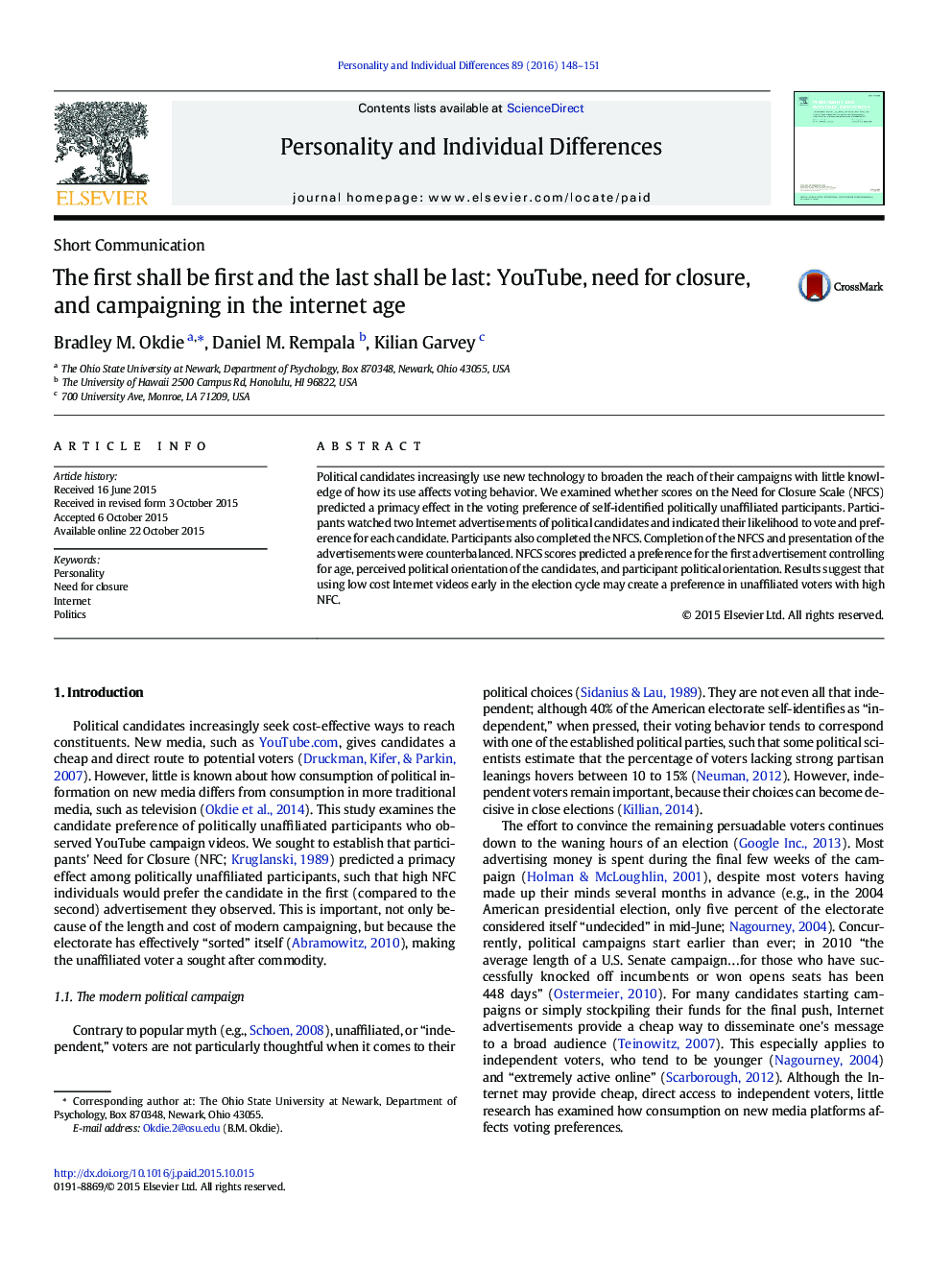| Article ID | Journal | Published Year | Pages | File Type |
|---|---|---|---|---|
| 7250832 | Personality and Individual Differences | 2016 | 4 Pages |
Abstract
Political candidates increasingly use new technology to broaden the reach of their campaigns with little knowledge of how its use affects voting behavior. We examined whether scores on the Need for Closure Scale (NFCS) predicted a primacy effect in the voting preference of self-identified politically unaffiliated participants. Participants watched two Internet advertisements of political candidates and indicated their likelihood to vote and preference for each candidate. Participants also completed the NFCS. Completion of the NFCS and presentation of the advertisements were counterbalanced. NFCS scores predicted a preference for the first advertisement controlling for age, perceived political orientation of the candidates, and participant political orientation. Results suggest that using low cost Internet videos early in the election cycle may create a preference in unaffiliated voters with high NFC.
Related Topics
Life Sciences
Neuroscience
Behavioral Neuroscience
Authors
Bradley M. Okdie, Daniel M. Rempala, Kilian Garvey,
